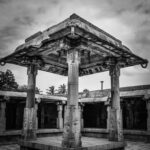Historical Perspective
Karnataka Historical Research Society (KHRS) is a land mark institute, which was started hundred years ago in the educational capital of Karnataka viz., Dharwad, with a laudable objective of arousing through researches a sense of patriotic feeling and pride among the people, highlighting their rich heritage. The emergence of KHRS and its researches were a fitting reply to an ill informed observation by some of the eminent indologists of that time that Chalukyas and Rashtrakutas were not Kannada speaking dynasties and that Karnataka per se does not have notable history. The contributions made by even British historians and pamphleteers like Dr John Faithfull Fleet C.I.E (1847–1917)(who authored “The Dynasties of the Kanarese Districts of The Bombay Presidency from the earliest historical times to the Musalman Conquest”), Mr. Robert Sewell (1845 -1920) (who authored A Forgotten Empire,) The Never to be Forgotten Empire of Sri B Suryanarayanarao, Justice VB Halbhavi’s Vijaya Nagara History in Kannada, Sri VB Alur’s Sri Vidyaranya Charitre, The Karnataka Kavi Charitre of Sri Narasimhachar, Sri NS Rajapurohit’s seven scholarly articles in a noted Marathi weekly from Pune-Kesari on Karnataka and Maharashtra, and the seminars and conferences that KHRS had organized through 1914 till 1947, pamphlets and publications brought out by it from time to time during this period strengthened the KHRS’ foundation and its role in inspiring the people of Karnataka in particular and of South India in general about how rich and distinguished was their past and how urgent is their task to preserve their own identity in the background of the onslaught on them by the western dominance. Contributions of other luminaries like Sri Rukmangadarao Dashpande, Mohare Hanumanth Rao, etc for the development of KHRS and the above publications and activities also tremendously strengthened public opinion about how important it is to achieve Independence from the foreign rule for this purpose. One may safely surmise that all these activities of KHRS inspired and produced eminent leaders and opinion makers in the country, who after independence manned important developmental initiatives including the socio economic and politico cultural activities in the country. The builders of KHRS proved to be the nation builders! This development of KHRS shows in eminently unambiguous terms what role research and a research institute can play in reconstruction and development of the nation.
